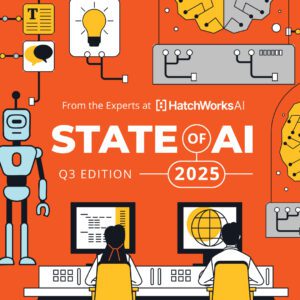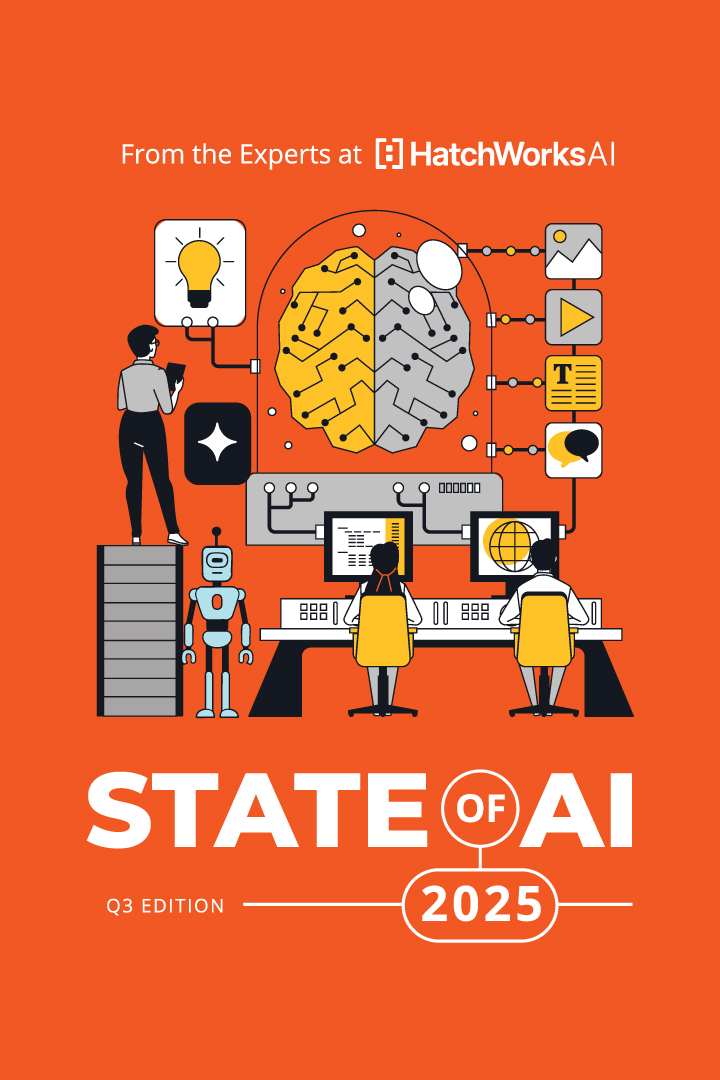How is the growing world of AI agents reshaping enterprise systems? In this episode of Talking AI, host Matt Paige is joined by Praveen Gunasekaran, Senior Director and Chief Architect at Visa, and Omar Shanti, CTO of HatchWorks, to explore the possibilities of agentic systems and their impact on software development.
Together, they look at the power of agentic systems—technologies that can autonomously make decisions and execute changes in business processes without human intervention. This shift from deterministic to probabilistic systems opens up new opportunities for software developers to create more dynamic and responsive products.
One of the key points in this episode is that agentic systems could help to democratize access to tech, enabling people with minimal coding experience to harness more advanced tools. But with that comes the question of governance. Omar talks about ensuring accountability and accuracy while preventing potential risks associated with AI agents.
Curious about how AI agents are changing the landscape of automation and real-time systems? Tune in to discover the future of multi-agent systems, real-time processing, and AI-driven innovation with Praveen Gunasekaran and Omar Shanti!
- How Praveen defines agentic systems and thinking
- How the agent model could lead to greater democratization of technology
- Why governance is essential for ensuring accuracy
- How measures like “AI judges” and breaking tasks into manageable parts could be the key
- How “an agent mesh” could become a new architecture for AI systems
- Are APIs still the standard that the industry will follow?
- Praveen’s advice for making decisions on architecture and how agentic systems might change that




